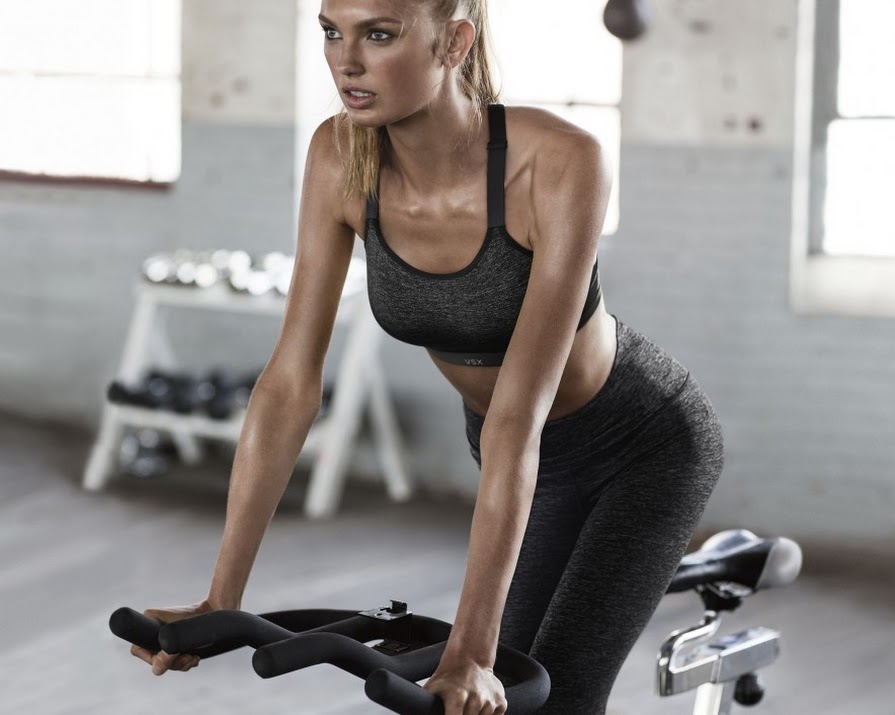
By IMAGE
16th Sep 2017
16th Sep 2017
Hit a plateau with your workout? JAMIE MYERSCOUGH offers top tips on how to springboard a new regime that’ll deliver results.
With the onset of a new season comes the urge for positive change, a desire to be healthier, to refine our routines, make new habits and feel better about ourselves. Even small changes can make a big difference in helping you get the most from your exercise routine. It’s about knowing what steps to take.
1 STEP IT UP
Those who train intensely with weights produce significantly higher levels of a positive stress hormone called growth hormone, which improves metabolic function (as well as helps fight tissue breakdown and staves off stress fractures). If you’re working out, but are no longer seeing results, chances are your growth hormone levels are low, but they can be positively impacted by upping the intensity. Resistance or weight training, when performed correctly, is one of the most intensive forms of exercise. To increase intensity, try completing your sessions in a shorter amount of time (eg 30 minutes max), reducing rests between exercises and sets, and lifting the most weight you can manage for three sets, with six to eight repetitions at a time.
2 RESULTS ARE SWEET ENOUGH
Unfortunately, there’s no getting around just how bad processed sugar is for the body. It increases insulin levels in the body, and as you age, you also become increasingly insulin resistant (ie your insulin isn’t as effective). Insulin resistance and increased insulin means more fat plateau, it could be due to a lack of protein. You should aim to consume a gram of protein per pound of body weight when exercising. So if you are 130lbs, you should eat 130g of protein, daily. Make sure your protein comes from first class sources such as meat, fish, dairy and eggs, as only these foods contain the right balance of amino acids for results.
3 EAT MORE
?protein! Aside from helping you beat those sugar cravings, protein is an absolute necessity in the body. Protein is made up of building blocks called amino acids, which are required for your muscle, hair, nails, skin, connective tissue, digestive enzymes and your immune system. If you’ve reached that plateau, it could be due to a lack of protein. You should aim to consume a gram of protein per pound of body weight when exercising. So if you are 130lbs, you should eat 130g of protein, daily. Make sure your protein comes from first class sources such as meat, fish, dairy and eggs, as only these foods contain the right balance of amino acids for results.
4 REST
Overtraining can be a problem. Your enthusiasm to achieve results may mean you are doing too much exercise. When you train, you produce a negative stress hormone called cortisol. Cortisol breaks down muscle tissue. If you train for too long over too many consecutive days, cortisol builds up in the body and combats the youthful, beneficial effects of growth hormone. Therefore, rest days are imperative. Consider training with the correct level of intensity for just three to four sessions per week max.
5 CHANGE
The phrase ‘a change is as good as a rest’ is especially true in terms of exercise. When you change your routine, you target different muscles or the same muscles, but perhaps different parts. This creates additional or new stress, which actually promotes growth hormone. You should aim to change your routine every four to six weeks if you wish to see progress.
In addition to being a qualified trainer whose clients include Robbie Williams and Darren Clarke, Jamie Myerscough is chief executive of Educogym, educogym.com.
PHOTOGRAPH COURTESY OF VICTORIA?S SECRET























